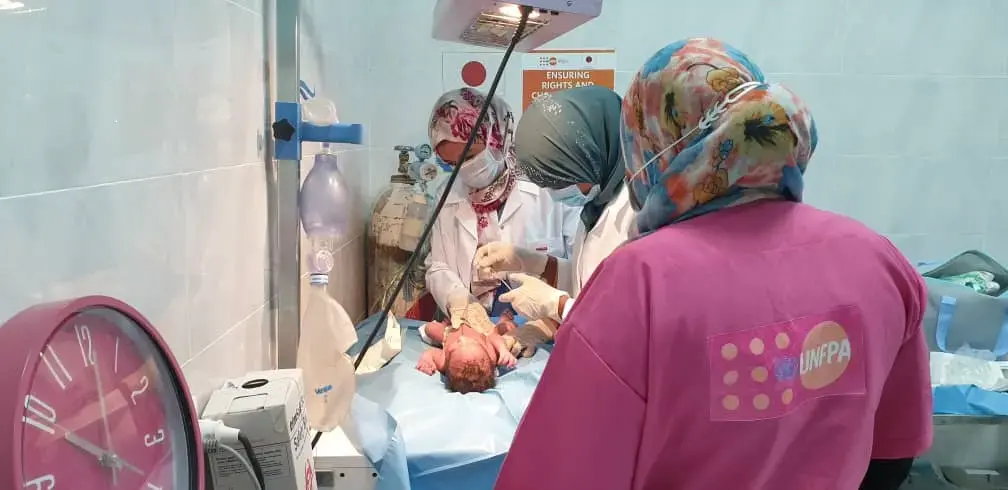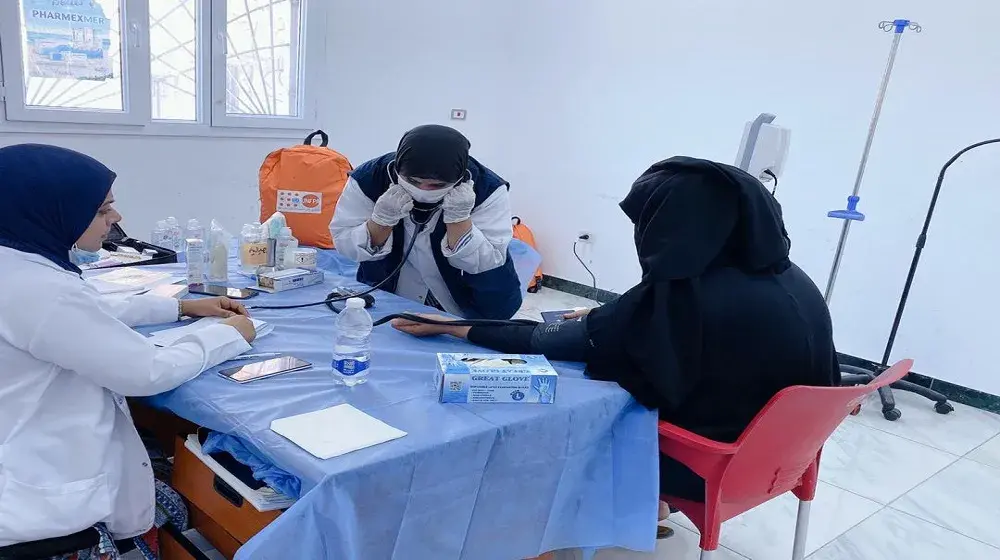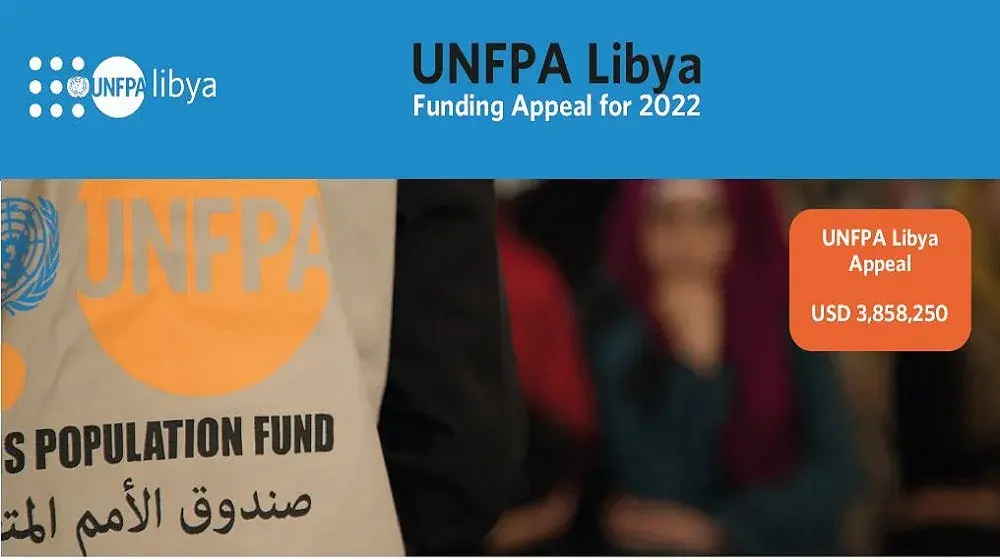UNFPA aims to ensure that all women of reproductive age, newborns, children, and adolescents, including migrants and refugees, in Libya enjoy high health standards and have access to high-quality and sustainable health care. It supports the Libyan health system to prevent excessive morbidities and mortalities amongst women of reproductive age.
UNFPA increased access for women and girls to high quality reproductive health services, with a focus on people affected by the humanitarian context in Libya. For provision of robust health solutions to communities in dire need, UNFPA Libya along with its partners has adopted an innovative approach in the form of mobile health units deployed in different locations in Libya.
Five pillars of UNFPA’s SRH intervention are:
● Advocacy and policy dialogue. This is the evidence-based development, improvement, reform, implementation, monitoring and assessment of policies, legislation, strategies, plans, budgets and programmes.
● Capacity development. This involves strengthening workforces’ skills, organizational and national systems, tools, resources and knowledge to achieve results
● Knowledge management. This includes generation and acquisition, dissemination and sharing, utilization and adaptation of knowledge products and evidence for accelerating the achievements of the three transformative results of UNFPA for Sustainable Development.
● Coordination, partnership and South-South and triangular cooperation. This involves building strategic connections, alliances, partnerships and networks among stakeholders and exchanging knowledge, creative solutions and innovations.
● Service delivery: The provision of effective, safe, comprehensive, life-saving and high-quality reproductive health or gender-based violence services, supplies or commodities to bridge essential gaps in Libya to address critical needs in humanitarian crises.







